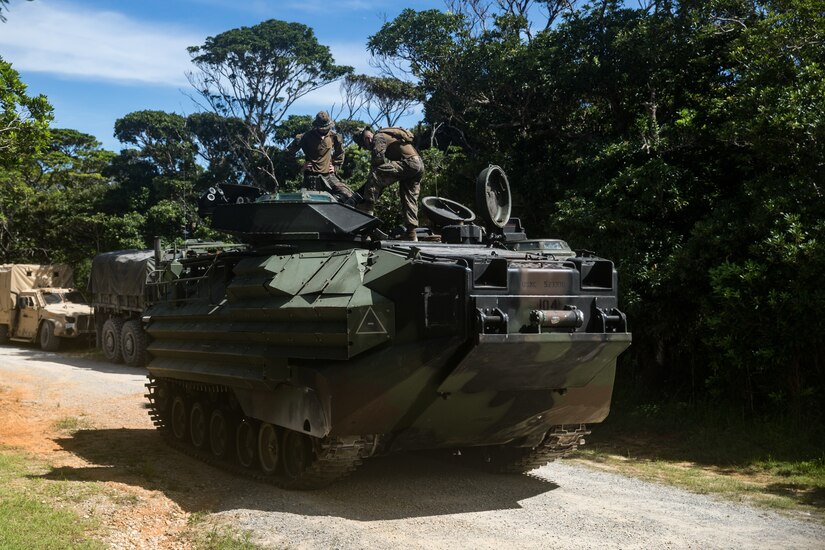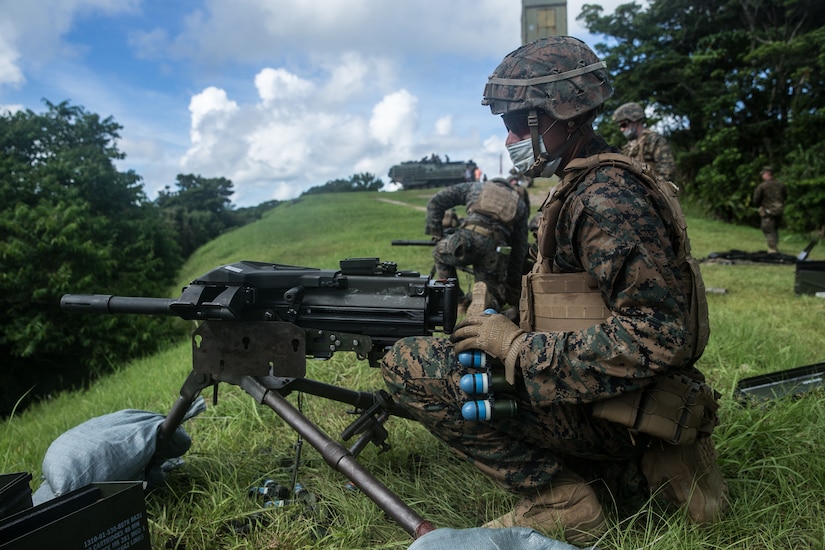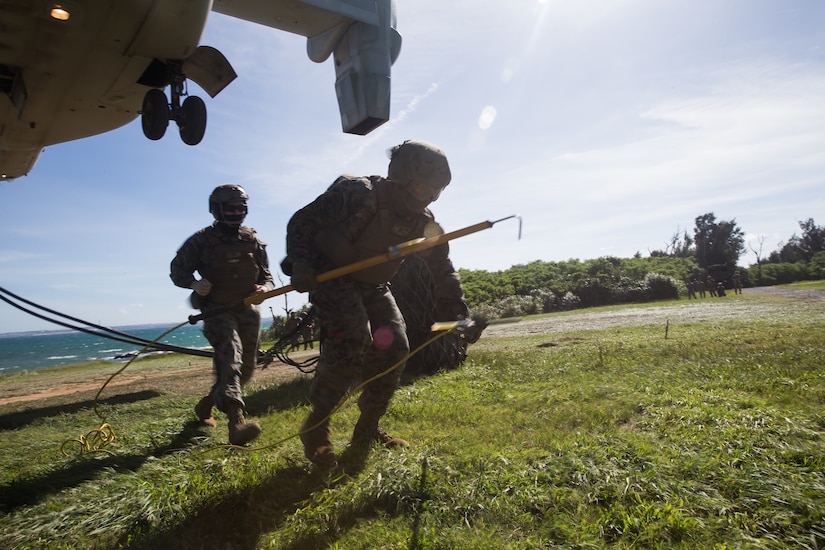Aug. 17, 2020 | , 31st Marine Expeditionary Unit
The July 13 training was designed to enhance coordination and familiarize subordinate elements with the MEU's unique mission set, in preparation for follow-on exercises that will incorporate the entire Marine Air Ground Task Force.
The 31st MEU, the Marine Corps' only continuously forward-deployed MEU, provides a flexible and lethal force ready to perform a wide range of military operations as the premier crisis response force in the Indo-Pacific region. The unit has implemented strict health protection measures and will continue to conduct mission essential training in support of regional security and stability, officials said.

The training kicked off with a communication exercise at the Jungle Warfare Training Center to integrate personnel and equipment from Battalion Landing Team, 2nd Battalion, 4th Marines, or BLT 2/4, with the communications section of the command element, testing the MEU's ability to sustain high-frequency communications across long distances from an austere environment.
"COMMEX is our only training event that focuses exclusively on communications," said Marine Corps Maj. Ryan Hamilton, communications officer for the 31st MEU. "It provides an opportunity for radio operators, systems administrators, network administrators and technicians to employ their equipment without the pressure of supporting larger unit-level training objectives.
"Marines can make mistakes, familiarize themselves with their equipment and learn what it means to operate in a remote location with no sources of outside support," he continued. "This training is key in the development of our Marines' technical skills and prepares them for follow-on exercises and operations."
BLT 2/4, which recently arrived from Camp Pendleton, California, worked in close coordination with Marine Medium Tiltrotor Squadron 262 (Reinforced), headquartered on Marine Corps Air Station Futenma, to conduct fast-rope training and on-off drills with MV-22B Ospreys.

"This was our first opportunity to coordinate with the aviation combat element and get Marines off the deck in Camp Butler," said Marine Corps Capt. Kenny Herman, Echo Company executive officer, BLT 2/4. "For many Marines, it was their first live-slide out of an MV-22. The Marines demonstrated proficiency during their live slides and proved they're more than capable of executing this insert technique in a real world mission."
Fast-rope training is critical to the battalion landing team because many of the missions the MEU conducts may require insertion and extraction of ground troops by aviation assets in hostile environments.
Combat Logistics Battalion 31's Helicopter Support Team also trained with VMM-262 (Reinforced) over the past few weeks, practicing their ability to attach loads to helicopters in-flight.
"Working with VMM-262 helps us increase our speed and proficiency at executing external lifts, said Marine Corps Staff Sgt. Mitchell Buelow, CLB-31's landing support chief. "We're able to practice so that if we need to, we can get large pieces of equipment to locations that we wouldn't otherwise be able to reach. [Helicopter support teams] are especially important during humanitarian assistance and disaster relief missions."
Other events included multiple live-fire ranges, reconnaissance and surveillance missions and tactical air control training with the intent of honing coordination and specific skills prior to the upcoming MEU exercise. While the training conducted over the past two weeks allowed the 31st MEU's subordinate elements to accomplish initial objectives, the MEU exercise will test the ability of the entire Marine Air Ground Task Force to operate together as a crisis response force.

"By working together during Interop, we developed a solid foundation to build on for MEUEX and any missions we will execute together in the future," said Marine Corps Maj. Brett De Maria, the 31st MEU assistant operations officer. "We are remaining flexible, constantly shifting our plans in order to get the maximum training possible while keeping our Marines safe from COVID-19."
Across the MEU, strict measures have been enforced to prevent the spread of the virus: wearing masks, physical distancing and the continuation of mission-essential training, in accordance with III Marine Expeditionary Force health protection guidance.
"The 31st MEU cannot stop training during this time. It's our job to respond to crisis at a moment's notice, and our nation and partner nations throughout the region are counting on us to be prepared in case the worst happens," De Maria said.








No comments:
Post a Comment